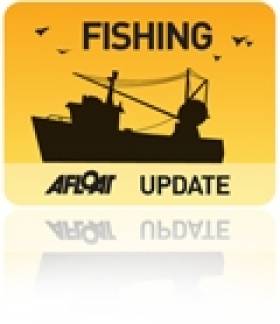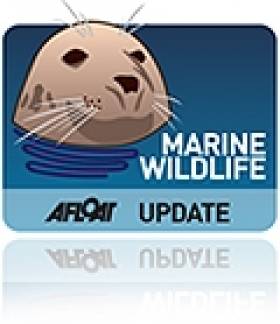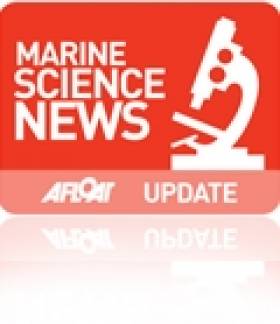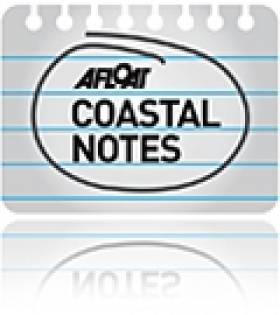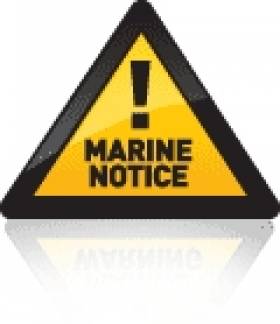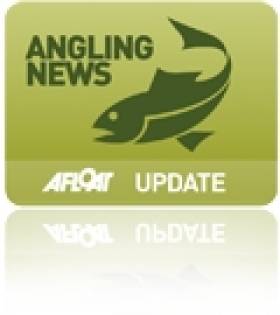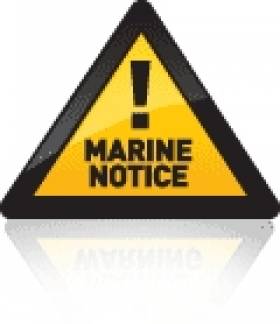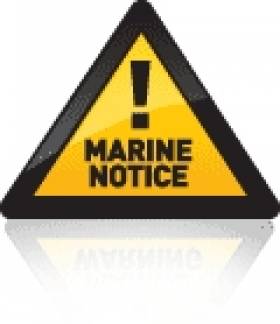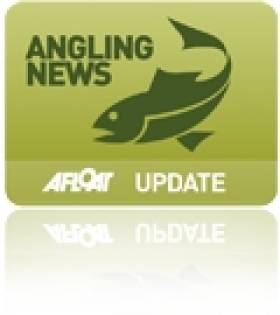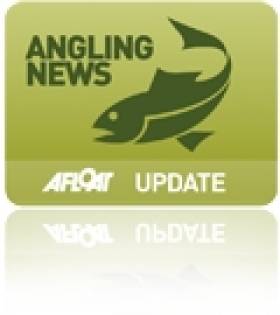Displaying items by tag: survey
Invitation To Tender For Boarfish Survey Vessel Charter
#Fishing - The Marine Institute is inviting tenders for the supply of a commercial fishing vessel to conduct a boarfish acoustic survey in ICES divisions VII b, c, g, h, j & k (west of Ireland, Celtic Sea and northern Biscay).
The vessel would be chartered for a period of 21 days to survey spawning aggregations of boarfish – a big seller for Ireland in the Chinese market – using hydro-acoustic techniques.
Vessels are invited to tender on the basis of their ability to undertake the survey schedule. This comprises following a pre-determined cruise track in the order of 3,200 nautical miles carried out over 21 days with 20hr operations (4am-midnight) and with directed trawl stations on fish schools of interest as and when required.
A single pelagic midwater trawl with a vertical opening of greater than 40m and contain a 20mm codend liner and/or sprat brailer will be a requirement for the survey. A liner can be provided if required but all other associated fishing equipment must be provided by the vessel.
The survey will be timed to coincide with the southerly end point of the RV Celtic Explorer on 10 July 2015 and this survey will act as a continuation. It is therefore essential that the charter vessel is out on the water and ready to begin surveying no later than midnight on 9 July 2015.
Detailed information of the track and survey plan will be provided by the Marine Institute. The successful applicant will be selected based on technical suitability, cost of charter, pelagic fishing track record and previous experience in scientific research and surveys.
The closing date for tenders is this Friday 29 May 2015 at 12 noon. Full details of the tender are available in a PDF to read or download HERE.
Migratory Swan Survey Set For This Weekend
#SwanCensus - Only a handful of Bewick's swans have been recorded in Ireland this winter ahead of a major international survey of migratory swans this weekend.
As RTÉ News reports, just three of the visiting waterfowl species have been sighted in Wexford so far, amid concerns that climate change is seeing them stay put in their Siberian homeland.
Whooper swans will also be counted in the latest edition of the five-yearly survey across a thousand coastal and waterside sites in Ireland this weekend, to see how numbers stand now against the 15,000 birds recorded in 2010 - half of the entire breeding population in their Icelandic home.
RTÉ News has more on the store HERE.
Marine Institute Brings Underwater TV Survey Tech To Bay Of Biscay
#MarineScience - The first underwater TV (UWTV) survey of the Bay of Biscay Nephrops grounds was carried out on the RV Celtic Voyager from 20-29 September.
This survey involved collaboration between the fishing industry and IFREMER, the French equivalent of the Marine Institute. The Celtic Voyager was chartered for this survey by the French fishing industry (CNPMEM).
The team of French scientists from Lorient were trained in the UWTV survey methodology by Jennifer Doyle, an expert from the Marine Institute. A fishing industry observer also participated in the survey.
This was the furthest south that the Irish Celtic Voyager research vessel has been to at 45°55′N 2°22′W.
The Bay of Biscay Nephrops grounds, known locally as 'la Grande Vasière', have an area of approximately 11,600 sqkm and support landings of Neprophs (better known as Dublin Bay prawns or langoustines) of around 4,000 tonnes annually.
During the 10-day survey, 160 UWTV stations were successfully completed with an average depth of 100 metres. At each station a sled-mounted camera system is towed at 1 knot. This allows for the detailed examination of the sea bed. The Nephrops burrows on the video footage collected are identified and counted by trained and experienced scientists.
Weather conditions throughout were perfect for TV operations with light winds, little or no swell and sea surface temperature around 20 degrees C. The visibility at the seabed was also excellent. The results from this survey will be analysed by IFREMER scientists to determine stock abundance.
The Marine Institute have been developing UWTV survey methods and technology since 2002. Since then, survey coverage has been expanded: in 2014 the main Nephrops stocks fished in Irish waters are have all been fully surveyed – Aran Grounds, Porcupine Bank, Western Irish Sea, Eastern Irish Sea, South Coast, Smalls, Labadie, Jones and Cockburn Banks.
These UWTV surveys form the cornerstone of the ICES assessments and management advice. The results of the TV surveys directly form the basis of the catch options.
All UWTV Marine Institute surveys reports are available online in the Marine Institute's open access repository.
Ireland's Coastal Connection Set To Change Under New Foreshore Bill
#CoastalNotes - The new Foreshore Bill is set to "radically change" Ireland's relationship with our coast, according to Coastwatch Ireland co-ordinator Karin Dubsky.
As The Irish Times reports, Dubsky was speaking at the launch of the 2014 Coastwatch Survey, welcoming the new bill that will see responsibilities for coastal management transferred to local authorities.
Previously, the Foreshore and Dumping at Sea (Amendment) Bill 2009 had transferred all foreshore licensing functions not associated with aquaculture and sea fishing from the then Department of Agriculture, Fisheries and Food to the erstwhile Department of the Environment, Heritage and Local Government.
Dubsky said the new legislation would give ordinary citizens a chance to shape Ireland's coastal policy via public audits such as the annual month-long Coastwatch Survey.
The Irish Times has more on the story HERE.
Marine Notices: Survey Operations In The Celtic Sea, Off Southwest Coast
#MarineNotice - The latest Marine Notice from the Department of Transport, Tourism and Sport advises that Osiris Projects will be carrying out two survey operations along the proposed interconnector route between Ireland and France.
The surveys will extend from the Shoreline at two locations in Co Cork (Ballinwilling Strand main route and Ballycroneen Beach alternative route) across the Celtic Sea to the shoreline at two locations in Northern France (Roscoff main route and Pontusval alternative route).
The first survey operation started on 17 August and is expected to run until 30 September, weather permitting. Survey works will be undertaken on the survey vessel RRS Ernest Shackleton (Callsign ZDLSI).
The vessel will operate on a 24-hour basis, will display appropriate day shapes and lights during survey operations and will actively transmit an AIS signal.
The RRS Ernest Shackleton will be towing survey equipment below the surface up to 600m behind the vessel. A wide berth is requested at all times as the vessel will be restricted in her ability to manoeuvre.
The second survey operation was expected to start on the Irish side yesterday (10 September) and will run until 20 September, weather permitting. Survey works will be undertaken on the survey vessel MV Proteus (Callsign 2HBL7).
The vessel will operate on a 12-hour basis, will display appropriate day shapes and lights during survey operations and will actively transmit an AIS signal.
The corridor width for each landing will be 250 metres from the high water mark to the 10-metre contour, then the corridor will widen to 500 metres as the route moves to France.
The survey vessel may be found running both along the corridor and in the general vicinity of the survey corridor. The vessel will be working between high water and 20 metre contour and in daylight hours only.
The MV Proteus will be towing survey equipment on and below the water surface up to 300m behind the vessel. A wide berth is requested at all times as the vessel will be restricted in her ability to manoeuvre.
Both vessels will be listening on VHF Channel 16 throughout the works. Full details of co-ordinates of the work areas are included in Marine Notice No 55 of 2014, a PDF of which is available to read or download HERE.
Meanwhile, a hydrographic and geophysical survey operation is presently being undertaken by INFOMAR on the RV Celtic Voyager off the southwest coast of Ireland, continuing till 17 September.
The vessel is towing a magnetometer sensor with a single cable of up to 100m in length. A wide berth is requested at all times as the vessel will be restricted in her ability to manoeuvre.
The vessel will display appropriate lights and markers, and will be listening on VHF Channel 16 throughout the project.
Co-ordinates for the bounding box of the survey area are detailed in Marine Notice No 54 of 2014, a PDF of which is available to read or download HERE.
#Angling - Inland Fisheries Ireland (IFI) wants your help to improve fish habitats and make your angling experience better.
Anglers across Ireland are being invited to take part in a survey as part of an international report on anglers' habits and how they rate the fisheries they frequent.
"Great fishing is about the prospect of lots of quality fish while spending time enjoying the outdoors," says IFI. "Quality fish come from healthy populations enjoying good water, plenty of food and access to habitat.
"When we have dams, denuded riverbanks, culverts, dredged gravel beds and poor water quality we don’t have healthy fish and we certainly don’t have great fishing experiences."
The survey should take no more than five minutes to complete. All information collected is anonymous and not related to your email address.
IFI is also offering a prize draw liked at the end of the survey where you could win a €300 tackle voucher.
Marine Notice: Marine Meteorological Monitoring Survey 2014
#MarineNotice - Marine Notice No 29 of 2014 calls on all ship managers, shipmasters, sailors, operators of fixed platforms and operators of non-SOLAS vessels to participate in the 2014 Marine Meteorological Monitoring Survey, which is available HERE.
The World Meteorological Organization (WMO) conducts the Marine Meteorological Monitoring Survey (MMMS) on a regular basis.
This is a tool to improve the level of meteorological support co-ordinated by the Joint WMO-IOC Technical Commission for Oceanography and Marine Meteorology (JCOMM), providing invaluable information to understand and reflect the needs and requirements of all marine communities in order to improve Marine Meteorological Information Services, as part of the Global Maritime Distress and Safety System (GMDSS).
The survey will continue until 30 June 2014. Any questions or enquiries should be made directly to the WMO Marine Meteorology and Oceanography Programme by email to [email protected] and not to the Department of Transport, Tourism and Sport.
Marine Notice: Hydrographic Survey Off Galway & Clare
#MarineNotice - The latest Marine Notice from the Department of Transport, Tourism and Sport (DTTAS) advices that a hydrographic and geophysical survey operation will be undertaken by INFOMAR for the Sustainable Energy Authority of Ireland (SEAI) off the Clare coast and in Galway Bay between 16 April and 3 May 2014, following a similar survey ongoing in Donegal Bay.
The RV Celtic Voyager (Call sign EIQN) is expected to carry out survey operations within an area detailed in Marine Notice No 25 of 2014, a PDF of which is available to read or download HERE.
The vessel will be towing a magnetometer sensor with a single cable of up to 100m in length, so all other vessels in the vicinity are requested to keep a wide berth. The vessel will display appropriate lights and markers, and will be listening on VHF Channel 16 throughout the project.
Lough Ree Survey To Assess Status of Coarse, Pike & Game Fish
#Angling - Inland Fisheries Ireland (IFI) is currently carrying out a complete fish stock survey on Lough Ree in the Midlands to assess the current status of coarse, pike and game fish populations in the lake.
The survey, which began on Monday 24 February and continues till Friday 14 March 2014, involves netting of 200 sites throughout Lough Ree performed by IFI staff from the Shannon River Basin Districts (ShRBD) and research staff in Swords, and comprising a total of five boat crews, two safety crews and processing crews based around Lough Ree.
The time of year of the survey is comparable with netting surveys on other major lakes in Ireland over the last 30 years or so. The type of information gleaned from the survey will include catch per unit effort (CPUE) for each fish species, size distributions of fish caught, aging for all species and microsatellite (DNA) analysis (for brown trout).
Sampling to assess the distribution of introduced (invasive) species will be carried out, with particular reference to the invasive ‘Asian clam’ Corbicula fluminea.
The genetic analysis of the brown trout will contribute the survey work carried out in 2013, with participation from anglers on Lough Ree, Lough Derravaragh, Lough Owel and the River Suck. In 2013 anglers sampled scales from adult trout caught in these areas and submitted these samples to IFI for DNA analysis.
In addition, all the major sub-catchments around Lough Ree, River Inny and River Suck were electro-fished in 2013 to help build up a baseline by which adult trout caught in these waterways can be attributed to the rivers in which they were spawned.
IFI describes this as very exciting work that will help build up a picture of what rivers (or parts of river sub-catchments) are contributing to the adult brown trout populations on these major lakes.
Similar work on the major western lakes have shown that the native brown trout can undertake extensive feeding and spawning migrations and has also shown (for example the ‘Croneen’ trout of the Camcor/Little Brosna system) that there are genetically distinct populations of trout which undergo large migrations from specific river systems to feed in large lakes like Lough Derg and Lough Ree.
Another aspect of this current netting survey will involve floy tagging of pike. Floy tags will be inserted below the dorsal fin of the pike and each fish will be released. Each tag will have a unique reference number which can easily be identified on later recapture of the pike.
Anglers will again be asked to record these tag numbers and potentially the length of fish, particularly during the major pike angling tournaments on Lough Ree in 2014. This will work as a mark-recapture method for estimating pike numbers in the lake, and it could potentially provide information on the growth rate of pike.
The survey crews will be very visible on Lough Ree over the next few weeks and all sets of nets will be marked with distinctive buoys labeled ‘IFI Survey’. Any anglers or other lake users are asked to be vigilant if out and about on the lake over the next few weeks and to avoid snagging in the nets.
#Angling - Almost one in every 10 people in Northern Ireland went fishing in the last 12 months - but 70% of NI residents said they had no interest in the sport.
These statistics were among the key findings in a new report on attitudes to angling by adults in Northern Ireland, using data from the Northern Ireland Omnibus Survey conducted this past April.
As the Belfast Telegraph reports, among the other findings were that almost a fifth of the population used to go fishing but no longer so do, while some 4% of the populace have never fished before and would like to try.
Most respondents cited their lack of interest in putting them off angling as a pastime, while 19% said they did not have enough free time.
But 12% said better information on how to fish would encourage them to take out a rod and reel.
The Belfast Telegraph has more on the story HERE.



























